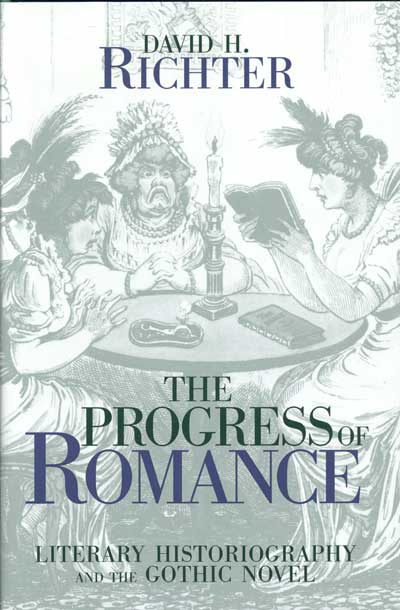The Progress of RomanceLiterary Historiography and the Gothic NovelDavid H. RichterTheory and Interpretation of Narrative |
 11/15/1996 242 pp. 6x9  $24.95 paper 978-0-8142-0695-9 Add paper to shopping cart Shopping Cart Instructions Review/Change Shopping Cart & Check-out | |||
|
|
In this vigorous response to recent trends in theory and criticism, Richter asks how we can again learn to practice literary history. Despite the watchword “always historicize,” comparatively few monographs attempt genuine historical explanations of literary phenomena. Richter theorizes that the modern literary ideas underlying our historical explanations—Marxism, formalism, and reception theory— are unable, by themselves to inscribe an adequate narrative of origins, development, and decline of genres and style systems. Despite theorists' attempts to incorporate other principles of explanation, each of these master narratives on its own has areas of blindness and areas of insight, questions it can answer and questions it cannot even ask. But the explanations, however differently focused, complement one another, with one supplying what another lacks. Using the first heyday of the Gothic novel as the prime object of study, Richter develops his pluralistic vision of literary history in practice. Successive chapters outline first a neo-Marxist history of the Gothic, using the ideas of Raymond Williams and Terry Eagleton to understand the literature of terror as an outgrowth of inexorable tensions within Georgian society; next, a narrative on the Gothic as an institutional form, drawn from the formalist theories of R. S. Crane and Ralph Rader; and finally a study of the reception of the Gothic—the way the romance was sustained by, and in its turn altered, the motives for literary response in the British public around the turn of the nineteenth century. In his concluding chapter, Richter returns to the question of theory, to general issues of adequacy and explanatory power in literary history, to the false panaceas of Foucauldian new historicism and cultural studies, and to the necessity of historical pluralism. A learned, engaging, and important book, The Progress of Romance is essential reading for scholars of British literature, narrative, narrative theory, the novel, and the theory of the novel.
| |||


